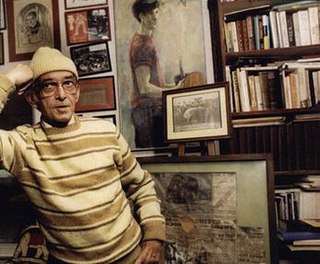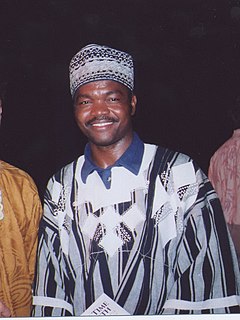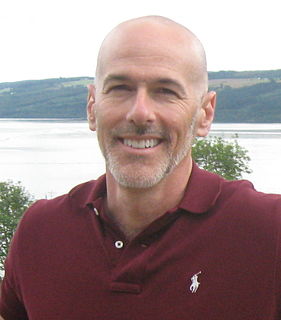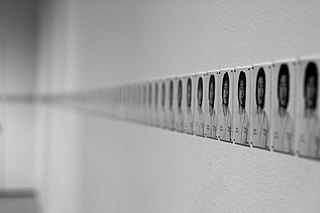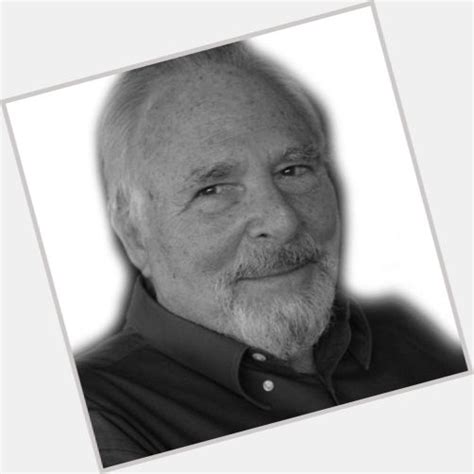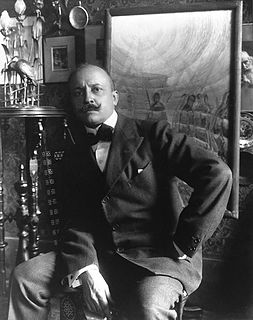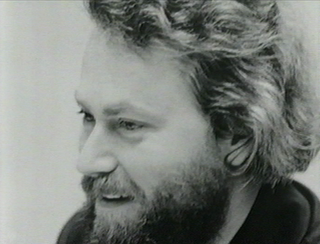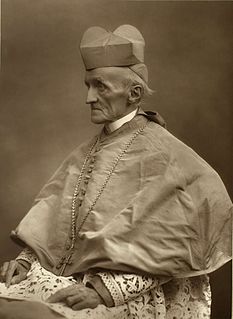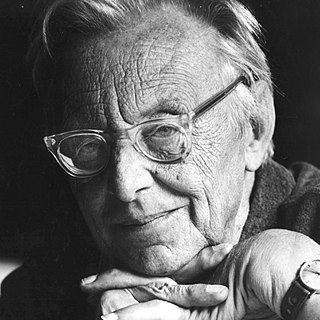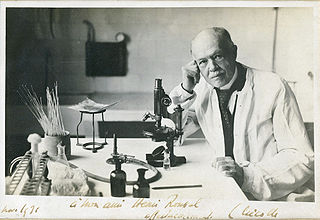Top 778 Primitive Quotes & Sayings - Page 13
Explore popular Primitive quotes.
Last updated on April 17, 2025.
In the Depression, besides everybody being poor, our entertainment was much more primitive and innocent. The comic strip, which I so venerated, was still a very new form. Movies had just become talkies. Radio had just gone coast to coast for the first time. Network radio had just begun when I was a kid. So all of these forms were more or less in their infancy, and feeling their oats. Comics were fresh and funny and nervy, and in a sense, defiant of the prevailing culture.
We ought to be cautious in taking even the best ascertained opinions and practices of the primitive Church for our own. If it could be satisfactorily shown that they esteemed it authorized and transmitted forever, that does not settle the question for us. We know how inveterately they were attached to their Jewish prejudices, and how often even the influence of Christ failed to enlarge their views. On every other subject succeeding times have learned to form a judgement more in accordance with the spirit of Christianity than was the practice of the early ages.
Sometime in the last 50,000 years, before 12,000 years ago, a kind of paradise came into existence. A situation in which men and women, parents and children, people and animals, human institutions and the land all were in dynamic balance and not in any primitive sense at all. Language was fully developed, poetry may have been at its climax, dance, magic, poetics, altruism, philosophy. There's no reason to think that these things were not practiced as adroitly as we practice them today and it was under the boundary dissolving influence of psilocybin.
All good intellects have repeated, since Bacon's time, that there can be no real knowledge but that which is based on observed facts. This is incontestable, in our present advanced stage; but, if we look back to the primitive stage of human knowledge, we shall see that it must have been otherwise then. If it is true that every theory must be based upon observed facts; it is equally true that facts can not be observed without the guidance of some theory. Without such guidance, our facts would be desultory and fruitless; we could not retain them: for the most part we could not even perceive them.
Let's face it: I'm scared, scared and frozen. First, I guess, I'm afraid for myself ... the old primitive urge for survival. It's getting so I live every moment with terrible intensity. Last night, driving back from Boston, I lay back in the car and let the colored lights come at me, the music from the radio, the reflection of the guy driving. It all flowed over me with a screaming ache of pain ... remember, remember, this is now, and now, and now. Live it, feel it, cling to it. I want to become acutely aware of all I've taken for granted. When you feel that this may be the good-bye, the last time, it hits you harder.
When a Pueblo Indian does not feel in the right mood, he stays away from the men's council. When an ancient Roman stumbled on the threshold as he left the house, he gave up his plans for the day. This seems to us senseless, but under primitive conditions of life such an omen inclines one at least to be cautious. When I am not in full control of myself, my bodily movements may be under a certain constraint; my attention is easily distracted; I am somewhat absent-minded. As a result I knock against something, stumble, let something fall, or forget something.
Listening is a rare happening among human beings. You cannot listen to the word another is speaking if you are preoccupied with your appearance, or with impressing the other, or are trying to decide what you are going to say when the other stops talking, or are debating about whether what is being said is true or relevant or agreeable.
Such matters have their place, but only after listening to the word as the word is being uttered.
Listening is a primitive act of love in which a person gives himself to another’s word, making himself accessible and vulnerable to that word.
In our prehistoric past, we would have lived in extended families, surrounded by kin whose interests we might have wanted to promote because they shared our genes. Now we live in big cities. We are not among kin nor people who will ever reciprocate our good deeds. It doesn't matter. Just as people engaged in sex with contraception are not aware of being motivated by a drive to have babies, it doesn't cross our mind that the reason for do-gooding is based in the fact that our primitive ancestors lived in small groups.
Historically the customs and traditions of day-to-day life in Africa have been dismissed by Western cultural anthropologists as primitive, chaotic, pagan activities that should be replaced by Christianity, the only civilized religion. The West has also long assumed that it should convert tribal cultures to literacy, which is to say an entirely different way of looking at the world, of living in the world. Most Africans who have achieved a comfortable Western lifestyle are Christian. Why? Because it comes with the package: Christian-ity, literacy, and a material lifestyle all come together.
Discovery is adventure. There is an eagerness, touched at times with tenseness, as man moves ahead into the unknown. Walking the wilderness is indeed like living. The horizon drops away, bringing new sights, sounds, and smells from the earth. When one moves through the forests, his sense of discovery is quickened. Man is back in the environment from which he emerged to build factories, churches, and schools. He is primitive again, matching his wits against the earth and sky. He is free of the restraints of society and free of its safeguards too.
To preserve wild animals implies generally the creation of a forest for them to dwell in or resort to. So it is with man. A hundred years ago they sold bark in our streets peeled from our own woods. In the very aspect of those primitive and rugged trees there was, methinks, a tanning principle which hardened and consolidated the fibres of men's thoughts. Ah! already I shudder for these comparatively degenerate days of my native village, when you cannot collect a load of bark of good thickness, and we no longer produce tar and turpentine.
A lot of people seem to get carried away that something that's made out of paper mâché is going to be better than not. And I always thought the original King Kong, that terrible little puppet with its hair going in all directions, was far more magical than Peter Jackson's incredibly beautifully rendered King Kong. So there's something to be said for a more primitive version of things. I think it's because it makes the audience work a little bit more, because you've got to invest it with life and reality, so I like doing that.
It seems probable to me that God, in the beginning, formed matter in solid, massy, hard, impenetrable, moveable particles, of such sizes and figures, and with such other properties, and in such proportions to space, as most conduced to the end for which He formed them; and that these primitive particles, being solids, are incomparably harder than any porous bodies compounded of them, even so very hard as never to wear or break in pieces; no ordinary power being able to divide what God had made one in the first creation.
A half century from now, our grandchildren are likely to look back at the era of mass employment in the market with the same sense of utter disbelief as we look upon slavery and serfdom in former times. The very idea that a human being's worth was measured almost exclusively by his or her productive output of goods and services and material wealth will seem primitive, even barbaric, and be regarded as a terrible loss of human value to our progeny living in a highly automated world where much of life is lived on the Collaborative Commons.
I remember a hundred lovely lakes, and recall the fragrant breath of pine and fir and cedar and poplar trees. The trail has strung upon it, as upon a thread of silk, opalescent dawns and saffron sunsets. It has given me blessed release from care and worry and the troubled thinking of our modern day. It has been a return to the primitive and the peaceful. Whenever the pressure of our complex city life thins my blood and benumbs my brain, I seek relief in the trail; and when I hear the coyote wailing to the yellow dawn, my cares fall from me - I am happy.
The most beautiful emotion we can experience is the mystical. It is the power of all true art and science. He to whom this emotion is a stranger, who can no longer wonder and stand rapt in awe, is as good as dead. To know that what is impenetrable to us really exists, manifesting itself as the highest wisdom and the most radiant beauty, which our dull faculties can comprehend only in their most primitive forms - this knowledge, this feeling, is at the center of true religiousness. In this sense, and in this sense only, I belong to the rank of devoutly religious men.
Great works of art can be produced in barbarous societies - in fact the very narrowness of primitive society gives their ornamental art a peculiar concentration and vitality. At some time in the ninth century one could have looked down the Seine and seen the prow of a Viking ship coming up the river. Looked at today in the British Museum, it is a powerful work of art; but to the mother of a family trying to settle down in her little hut, it would have seemed less agreeable - as menacing to her civilisation as the periscope of a nuclear submarine.
Modern anthropology ... opposes the utilitarian assumption that the primitive chants as he sows seed because he believes that otherwise it will not grow, the assumption that his economic goal is primary, and his other activities are instrumental to it. The planting and the cultivating are no less important than the finished product. Life is not conceived as a linear progression directed to, and justified by, the achievement of a series of goals; it is a cycle in which ends cannot be isolated, one which cannot be dissected into a series of ends and means.
I'm very pessimistic about adaptations from one medium to another. I've got a very kind of primitive, Puritan view of it. I tend to think that if something was derived for one medium, then there's no real immediate reason to think that it's necessarily going to be as good or better if adapted into another one. There have been very good stage plays that have made some very good films. But there are not so many differences between the theater and the cinema as there are between the cinema and, say, reading a book or reading a comic.
Religion is like our appendix, a vestigial remnant from a primitive past. Perhaps in a few millennia the god of Abraham will invoke the same curious amusement as rain and sun gods do today. Or perhaps our god will simply be shelved along with Zeus and Jupiter. Some day. But until then, we suffer the consequences of a population that believes in the absence of evidence and, more curiously, rejects an objective reality that conflicts with beliefs easily proven false.
Rebellion against technology and civilization is real rebellion, a real attack on the values of the existing system. But the green anarchists, anarcho-primitivists, and so forth (The "GA Movement") have fallen under such heavy influence from the left that their rebellion against civilization has to great extent been neutralized. Instead of rebelling against the values of civilization, they have adopted many civilized values themselves and have constructed an imaginary picture of primitive societies that embodies these civilized values.
An empirical philosophy is in any case a kind of intellectual disrobing. We cannot permanently divest ourselves of the intellectual habits we take on and wear when we assimilate the culture of our own time and place. But intelligent furthering of culture demands that we take some of them off, that we inspect them critically to see what they are made of and what wearing them does to us. We cannot achieve recovery of primitive naïveté. But there is attainable a cultivated naïveté of eye, ear and thought.
Communication has changed so rapidly in the last 20 years, it's almost impossible to predict what might occur even in the next decade. E-mail, which now sends data hurtling across vast distances at the speed of light, has replaced primitive forms of communication such as smoke signals, which sent data hurtling across vast distances at the speed of light.
I know now that he who hopes to be universal in his art must plant in his own soil. Great art is like a tree, which grows in a particular place and has a trunk, leaves, blossoms, boughs, fruit, and roots of its own. The more native art is, the more it belongs to the entire world, because taste is rooted in nature. When art is true, it is one with nature. This is the secret of primitive art and also of the art of the mastersMichelangelo, Czanne, Seurat, and Renoir. The secret of my best work is that it is Mexican.
Whatever experimental film aromas cloaked my movies were because I'm a gleefully clumsy, primitive filmmaker. I really like traditional pleasingly narrative films, but I also just couldn't resist throwing in the disruptive. It seems to me that art-house film is at its glorious zenith right now, maybe it can even get better? There's just so many good films, you know Cemetery Of Splendour, Arabian Nights, Miguel Gomes, just so much great work coming out.
I know I am a human being. I can give myself to one year for a project. That is why I say I'm primitive in the way I work, especially compared to most artists. I came to New York in 1974, knowing that it is the art center of the world. But I didn't go to find people for my work. I do the work, and the people come to me, and I learn from them. That has always been my approach - to do the job first and then to respond to it after I finish and learn what people think about it. That's how I develop, and I'm more of an outsider in that way.
Pessimists are just as illogical as optimists; insomuch as both envisage the aims of mankind as unified, and as having a direct relationship (either of frustration or of fulfilment) to the inevitable flow of terrestrial motivation and events. That is - both schools retain in a vestigial way the primitive concept of a conscious teleology - of a cosmos which gives a damn one way or the other about the especial wants and ultimate welfare of mosquitos, rats, lice, dogs, men, horses, pterodactyls, trees, fungi, dodos, or other forms of biological energy.
I work in several different groups of pictures which act on and with each other - ranging from several abstracted manners to a form for the surreal. I have been called a preacher - but, in reality, I'm more generally philosophical. I have never made an abstracted photograph without content. An educated background in Zen influences all of my photographs. It has been said that my work resembles, more closely than any photographer, Le Douanier Rousseau - working in a fairly isolated area and feeding mostly on myself - I feel that I am a primitive photographer.
The idea of hunting and gathering as the best way for life has become quite popular recently, much more populare in some circles than the idea of simple farming as the best way of life. Many of the new primitives regard the beginnings of agriculture as one of humanity's major steps in the wrong direction. Most of the people who are drawn to such ideas do their actual hunting and gathering in grocery stores, but the *feeling* is there; it takes the form of a religion...expressed by particpating in American Indian rituals - or primitive-style rituals that are created anew.
Russia, Russia - unwashed, backward, appealing Russia, so ashamed of your own backwardness, so orientally determined to conceal it from us by clever deceit. So sensitive and so suspicious in the face of the wicked, civilized west. I shall always remember you slyly, touchingly, but with great shouting and confusion - pumping hot water into our sleeping car in the frosty darkness of a December morning in order that we might not know, in order that we might never realize, to how primitive a land we had come.
The people wanted to believe that the Negroes couldn't learn to read music but had a natural talent for it. So we never played with no music. I'd get all the latest Broadway music from the publisher, and we'd learn the tunes and rehearse them until we had them all down pat- never made no mistakes. All the high-tone, big-time folks would say, isn't it wonderful how these untrained, primitive musicians can pick up all the latest songs instantly without being able to read music?
Each home has been reduced to the bare essentials -- to barer essentials than most primitive people would consider possible. Only one woman's hands to feed the baby, answer the telephone, turn off the gas under the pot that is boiling over, soothe the older child who has broken a toy, and open both doors at once. She is a nutritionist, a child psychologist, an engineer, a production manager, an expert buyer, all in one. Her husband sees her as free to plan her own time, and envies her; she sees him as having regular hours and envies him.
Note, to-day, an instructive, curious spectacle and conflict. Science, (twin, in its fields, of Democracy in its)—Science, testing absolutely all thoughts, all works, has already burst well upon the world—a sun, mounting, most illuminating, most glorious—surely never again to set. But against it, deeply entrench'd, holding possession, yet remains, (not only through the churches and schools, but by imaginative literature, and unregenerate poetry,) the fossil theology of the mythic-materialistic, superstitious, untaught and credulous, fable-loving, primitive ages of humanity.
That a thing made by hand, the work and thought of a single craftsman, can endure much longer than its maker, through centuries in fact, can survive natural catastrophe, neglect, and even mistreatment, has always filled me with wonder. Sometimes in museums, looking at a humble piece of pottery from ancient Persia or Pompeii, or a finely wrought page from a medieval illuminated manuscript toiled over by a nameless monk, or a primitive tool with a carved handle, I am moved to tears. The unknown life of the maker is evanescent in its brevity, but the work of his or her hands and heart remains.
English stupidity is an organism so primitive that it is apparently impossible to kill off. It reminds me of Physarum Polycephalum, the gigantic slime mould recently bred by scientists at Bonn. Bright yellow and about two millimetres thick, this monocellular creature--neither plant nor animal--grew to a size of 10 square yards before the scientists took fright and froze it. It can smell its favourite food, and move towards it at a speed of up to two centimetres an hour. This favourite food is porridge.
To play with baubles is our ambition, not to deal with grave questions in a spirit of serious energy. But while we are playing with baubles, with our Legislative Councils, our Simultaneous Examinations, our ingenious schemes for separating the judicial from the executive functions, - while we, I say, are finessing about trifles, the waters of the great deep are being stirred and that surging chaos of the primitive man over which our civilised societies are superimposed on a thin crust of convention, is being strangely and ominously agitated.
When will you disembarrass yourselves of the lymphatic ideology of that deplorable Ruskin, which I would like to cover with so much ridicule that you would never forget it? With his morbid dream of primitive and rustic life, with his nostalgia for Homeric cheeses and legendary wool-spinners, with his hatred for the machine, steam power, and electricity, that maniac of antique simplicity is like a man who, after having reached full physical maturity, still wants to sleep in his cradle and feed himself at the breast of his decrepit old nurse in order to recover his thoughtless infancy.
I begged her, 'Please don't leave me stranded in the middle of some primitive zarking forest with no medical help and a head injury. I could be in serious trouble and so could she.'" "What did she say?" "She hit me on the head with the rock again," Ford responded curtly. "I think i can confirm that was my daughter." "Sweet kid." "You have to get to know her," said Arthur. "She eases up, does she?" "No, but you get a better sense of when to duck.
Our understanding of early Christian beginnings is usually monolithic. It is much determined by the Acts of the Apostles, which pictures a straightforward development from the primitive community in Jerusalem founded on Pentecost to the world-wide mission of Paul climaxing with his arrival in Rome, the political centre of the Greco-Roman world. The Pauline epistles are understood not so much as historical sources reflecting a much more multifaceted early Christian situation fraught with tensions but as theological treatises expounding and defending the doctrine of justification by faith.
If I had to choose between the two ways of approaching the deity, I should prefer the existential relational way, to the abstract philosophical way. I think it is truer, or in any case, less misleading, to say that God is an old Jew with a white beard whom I love, than to say that God is the ground of being and meaning, or to say that God is a name denoting the ultimate mystery. I prefer the bold primitive colors of the Biblical way of describing God.
The paintings that laughed at him merrily from the walls were like nothing he had ever seen or dreamed of. Gone were the flat, thin surfaces. Gone was the sentimental sobriety. Gone was the brown gravy in which Europe had been bathing its pictures for centuries. Here were pictures riotously mad with the sun. With light and air and throbbing vivacity. Paintings of ballet girls backstage, done in primitive reds, greens, and blues thrown next to each other irreverantly. He looked at the signature. Degas.
The art and architecture of the past that we know is that which remains. The best is that which remains where it was painted, placed or built. Most of the art of the past that could be moved was taken by conquerors. Almost all recent art is conquered as soon as it's made, since it's first shown for sale and once sold is exhibited as foreign in the alien museums. The public has no idea of art other than that it is something portable that can be bought. There is no constructive effort; there is no cooperative effort. This situation is primitive in relation to a few earlier and better times.
Mohammed knew that most people are terribly cowardly and stupid. That is why he promised two beautiful women to every courageous warrior who dies in battle. This is the kind of language a soldier understands. When he believes that he will be welcomed in this manner in the afterlife, he will be willing to give his life, he will be enthusiastic about going to battle and not fear death. You may call this primitive and you may laugh about it, but it is based on deeper wisdom. A religion must speak a man's language.
I watch a sort of primitive form of the recommodification machine around my friends and myself in sixties, and it took about two years for this clumsy mechanism to get and try to sell us The Monkees. In 1977, it took about eight months for a slightly faster more refined mechanism to put punk in the window of Holt Renfrew. It's gotten faster ever since. The scene in Seattle that Nirvana came from: as soon as it had a label, it was on the runways of Paris.There's no grace period, so that's a way in which I see us losing the interstitial.
But the appeal to antiquity is both a treason and a heresy. It is a treason because it rejects the Divine voice of the Church at this hour, and a heresy because it denies that voice to be Divine. How can we know what antiquity was except through the Church? ... I may say in strict truth that the Church has no antiquity. It rests upon its own supernatural and perpetual consciousness. ... The only Divine evidence to us of what was primitive is the witness and voice of the Church at this hour.
The subject matter covered in Carmina stays pretty basic: love, lust, the pleasures of drinking and the heightened moods evoked by springtime. These primitive and persistently relevant themes are nicely camouflaged by the Latin and old German texts, so the listener can actually feign ignorance while listening to virtually X-rated lyrics. (Veni Veni Venias! Come, come come now!)The music itself toggles between huge forces and a single voice, juxtaposing majesty and intimacy with ease.
Some form of gnosis or immediacy is attached to all thinking as its root-form or primitive origination; every act of thinking has this passive derivation, this coming-into-being of thinking not out of nothing (as it likes to imagine) but out of some unthinkable something. But the most self-abstractivist or self-reductivist kind of thinking cannot tolerate even the notion (much less the traumatic experience or confrontation) of an incurable pathos, a weakness or blind-spot, within consciousness. The very idea is an insult to the autonomy or self-determinability of ego/will/reason.
He was tall, one of the tallest men she had ever seen. Dressed in jeans, boots and a cotton shirt. Thick black hair grew rakishly long, falling over the collar of his shirt. Intense brown eyes, almost the color of amber, surveyed the diner slowly before coming back to her. Electricity sizzled in the air then, as though invisible currents connected them, forcing her to recognize him on a primitive level. Not that she wouldn’t take notice anyway. He was power, strength, and so incredibly male that her breath caught at the sight of him.
We are part of nature, a product of a long evolutionary journey. To some degree, we carry the ancient oceans in our blood. … Our brains and nervous systems did not suddenly spring into existence without long antecedents in natural history. That which we most prize as integral to our humanity - our extraordinary capacity to think on complex conceptual levels - can be traced back to the nerve network of primitive invertebrates, the ganglia of a mollusk, the spinal cord of a fish, the brain of an amphibian, and the cerebral cortex of a primate.
And, to prevent mistakes, I must advertize you, that I now mean by elements, as those chymists that speak plainest do by their principles, certain primitive or simple, or perfectly unmingled bodies; which not being made of any other bodies, or of one another, are the ingredients of which all those called perfectly mixt bodies are immediately compounded, and into which they are ultimately resolved: now whether there be any such body to be constantly met with in all, and each, of those that are said to be elemented bodies, is the thing I now question.
Marriage has become a battlefield where two persons are fighting for supremacy. Of course, the man has his own way: rough and more primitive. The woman has her own way: feminine, softer, a little more civilized, more subdued. But the situation is the same. Now psychologists are talking about marriage as an intimate enmity. And that's what it has proved to be. Two enemies are living together pretending to be in love, expecting the other to give love; and the same is being expected by the other. Nobody is ready to give - nobody has it. How can you give love if you don't have it?
And this is the ultimate lesson that our knowledge of the mode of transmission of typhus has taught us: Man carries on his skin a parasite, the louse. Civilization rids him of it. Should man regress, should he allow himself to resemble a primitive beast, the louse begins to multiply again and treats man as he deserves, as a brute beast. This conclusion would have endeared itself to the warm heart of Alfred Nobel. My contribution to it makes me feel less unworthy of the honour which you have conferred upon me in his name.
The Navajo, for example, regard their traditional lands as within the four sacred peaks. One of those sacred peaks is the San Francisco Peaks where the ski resort, one of the holiest, sacred mountains in Navajo cosmology. I mean, it's considered a horrible desecration. I mean, you know, put it into another cultural context and you wouldn't be able to think of that being, with any other racial group. But for Indians because, you know, we think they really don't care about land or they have primitive ideas or they don't have ownership, we completely disrespect that.
Man must be able to think freely and he must be able to express his thoughts freely! He who is against this is not only fascist and primitive but at the same time is a very great coward also! Only the brave and the honourable men are never afraid of freedom of thought and freedom of expression of ideas! Just like the cockroaches do not like the light, evil minds also do not like the freedom of thoughts!
Dwarfs were not a naturally religious species, but in a world where pit props could crack without warning and pockets of fire damp could suddenly explode they'd seen the need for gods as the sort of supernatural equivalent of a hard hat. Besides, when you hit your thumb with an eight-pound hammer it's nice to be able to blaspheme. It takes a very special and strong-minded kind of atheist to jump up and down with their hand clasped under their other armpit and shout, "Oh, random-fluctuations-in-the-space-time-continuum!" or "Aaargh, primitive-and-outmoded-concept on a crutch!
The concept of guilt is found most powerfully developed even in the most primitive communal forms which we know... the man is guilty who violates one of the original laws which dominate the society and which are mostly derived from a divine founder; the boy who is accepted into the tribal community and learns its laws, which bind him thenceforth, learns to promise; this promise is often given under the sign of death, which is symbolically carried out on the boy, with a symbolical rebirth.
The system of technological production that we have today has been justified in terms of creating more goods to feed more people and to meet more needs. But it actually destroys more of the resources that we need in order to meet those multiple needs. If we shift to an ecological perception, a diversity perception, we realize that some of the instruments of which we are very proud are actually extremely primitive for dealing with nature. To me that is the great lesson of ecological awareness at the turn of the millennium.
We have also obtained a glimpse of another crucial idea about languages and program design. This is the approach of statified design, the notion that a complex system should be structured as a sequence of levels that are described using a sequence of languages. Each level is constructed by combining parts that are regarded as primitive at that level, and the parts constructed at each level are used as primitives at the next level. The language used at each level of a stratified design has primitives, means of combination, and means of abstraction appropriate to that level of detail.






